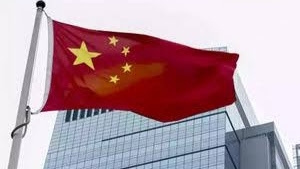China's financial supernatural occurrence
 |
| China's financial supernatural occurrence |
Chinese President Xi Jinping features a higher understanding of the economic challenges facing his country than most investors. In recent years, the leader-for-life has warned of the risks expose by the important estate bubble, excessive debt levels, widespread corruption and rising inequality. These issues aren't distinctive to the People’s Republic.
Within the past, each country in the region that adopted the alleged Asian development model has featured similar problems. Xi’s quandary is that there's no simple approach for China to surmount them.
The Asian development model has many common features: collectivistic banks offer low-cost loans to favored industries; the currency is unbroken at an associate undervalued level to spice up exports; domestic consumption is suppressed to form savings for investment; and fast modernization is achieved by adopting foreign technologies.
Since warfare Two, this mixture of policies tried remarkably winning at narrowing development gaps between Asia and {also the} West. However, growth in Asia is inherently unstable.
Unnaturally low interest rates fuel assets bubbles, comparable to Japan fully fledged within the late Eighties and Kingdom of Thailand in the following decade. Simple cash also ends up in the buildup of excessive debts, as occurred across geographical area within the early 1990s.
Low-cost capital encourages wasteful investments that underneath mine productivity growth. The policy of suppressing domestic consumption creates an associate unbalanced economy. Furthermore, opportunities for corruption abound once credit is distributed by state-run banks, as Indonesia fully fledged under the kleptocratic national leader regime.
Japan’s long amount of economic enlargement over when the Bank of Japan determined in late 1989 to burst the property bubble. The Asian “Tigers” – because the invasive economies were referred to as – ran off the formation many years later.
As social scientist Paul Krugman incontestable at the time, the economic “miracle” could solely be sustained with ever-larger inputs of capital and labor. Once foreign creditors began to withdraw their capital within the mid-1990s, the region fully fledged a monetary crisis.
Currently, contemplate China’s current predicament. Since the Communist Party embraced economic reform in the late 1970s, it's pursued what Peiping University’s archangel Pettish dubs the “Asian development model on steroids”. China’s savings and investment rose to higher levels, and consumption fell under the other Asian economy had ever witnessed.
The People’s Republic has surfeited on debt, that has climbed by around a hundred proportion points (relative to GDP) since the worldwide monetary crisis. The value of China’s assets is matched solely by Japan’s in 1989. Whereas the grounds of the Emperor’s palace in Tokyo at the bubble’s peak were reportedly worth quite Canada’s entire real estate, China is claimed to own enough vacant properties to deal with the complete Canadian population of thirty-eight million, and more.
No marvel, President Xi bemoans that property is for living in instead of speculation which the country’s “unbalanced and inadequate development” has not improved the standard of living for several Chinese nationals. He's currently lining for “common prosperity” that entails a discount in inequality. At the identical time, the president desires to chop excess capacity, cut back leverage and create housing a lot of affordable.
All this can be to be achieved whereas “promoting swish economic growth” and avoiding a “Black Swan”, or monetary crisis. To understand the challenges facing China, contemplate what happened to its neighbors once their economies suddenly modified direction. Once Japan’s assets market turned down in 1990, residential properties became more affordable.
However, the bust created 2 banking crises and a persistent deflation that decorated over the economy for decades. It’s true that Japan boosted its consumption share within these years, however this occurred at a time once the economic process itself had stalled. Peiping understands Japan’s lost decade to a tolerable degree to not want to repeat that experience.
Once the Asian Tigers suddenly met bother in the mid-1990s, they were forced down a distinct path. Once issues emerged in Thailand, foreign creditors rush for the exits. Contagion spreads from one country to another, together with countries comparable to Taiwan and South Korea that boasted accounting surpluses and piles of interchange reserves.
This wasn’t an amount of “smooth economic growth” but of collapsing currencies, widespread bankruptcy, International money bailouts and, in Indonesia’s case, civil discord that brought down a national leader and his cronies. Asian country introduced capital controls to lure foreign speculators. The Asian crisis had a silver lining, at least. Countries that fully fledged sharp currency devaluations became way more competitive.
In 1999, South Korea’s economy distended by quite 10%. The investment strategic Russell Napier, who witnessed these
Summary
Ever since the Communist Party passed economic reform in the late 1970s, it has pursued what Michael Pettis of Peking University calls the "Asian development model on steroids." China's savings and investment rose to higher levels, and consumption fell as no other Asian economy has ever seen.The People's Republic suffers from debt that has increased by around 100 percentage points (based on GDP) since the global financial crisis. Decades.Japan increased its share of consumption during these years, but it did so at a time when economic growth was stagnating.







0 Comments